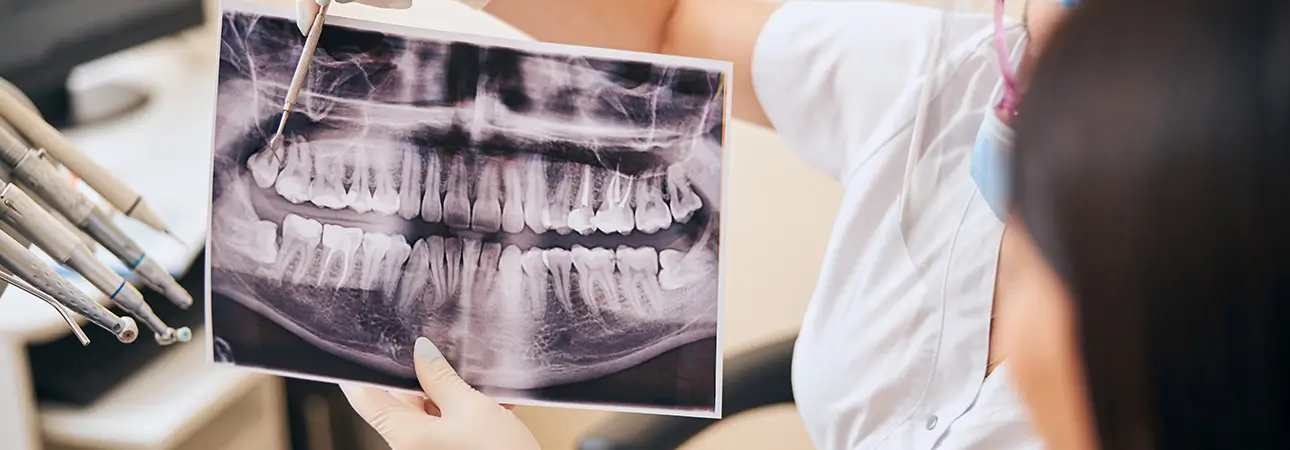Are you wondering how to know if you need your wisdom teeth removed? Wisdom teeth, also commonly known as third molars, typically erupt during late adolescence or early adulthood. While these teeth can be valuable assets when healthy and properly aligned, they often pose problems due to insufficient space or improper positioning. In this blog, we will examine how to indicate the warning signs you need your wisdom teeth removed, empowering you to make informed decisions about your oral health.
Understanding Wisdom Teeth
Wisdom teeth grow as the final set of molars to emerge, commonly appearing between the ages of 17 and 25. Positioned at the back of the mouth, they can be problematic when there isn’t enough space for them to emerge fully or if they grow in at an angle. They may become impacted in such cases, leading to various oral health issues.
Common Warning Signs
Persistent Pain or Discomfort
One of the most prevalent indicators of wisdom teeth problems is persistent pain or discomfort in the back of the mouth. This pain may manifest as dull, throbbing sensations or sharp, intense discomfort. If you are experiencing pain that is recurrent or worsening in your molars or jaw area, it’s essential to seek dental evaluation promptly.
Swelling and Inflammation
Swelling and inflammation around the gums near your wisdom teeth can signal underlying issues. If you notice swelling, redness, or tenderness in the back of your mouth, particularly around your molars, it could indicate infection or impaction. Ignoring these symptoms can further lead to complications, so it’s crucial to address them promptly.
Difficulty Opening Mouth or Biting Down
Difficulty opening your mouth fully or experiencing discomfort when biting down can be signs of wisdom teeth problems. Impacted wisdom teeth can apply pressure on surrounding teeth and tissues, resulting in restricted jaw movement or discomfort when biting or chewing. If you encounter these difficulties, you should consult a dentist for evaluation.
Gum Problems
Issues such as gum tenderness, bleeding, or inflamed gum tissues around your wisdom teeth should not be overlooked. These symptoms may indicate gum disease or infection related to impacted molars. Proper oral hygiene practices and scheduling regular checkups with your dentist is vital for preventing and addressing gum problems associated with wisdom teeth.
Crowding or Shifting Teeth
Changes in tooth alignment, particularly crowding or shifting in the rear of your mouth, may signal wisdom teeth-related issues. As impacted wisdom teeth attempt to emerge, they can apply pressure on adjacent teeth, causing them to shift position. Monitoring changes in tooth alignment can help identify potential problems early on.

Additional Signs and Symptoms
Chronic Bad Breath or Unpleasant Taste
Persistent bad breath or a lingering unpleasant taste in your mouth could indicate an infection or decay associated with impacted wisdom teeth. Bacteria trapped around partially erupted molars can lead to foul odours and taste alterations. Maintaining meticulous oral hygiene and addressing these symptoms promptly is essential for preventing oral health complications.
Difficulty with Oral Hygiene
Cleaning around impacted wisdom teeth can be challenging due to their location at the back of the mouth. If you experience difficulty reaching these areas with your toothbrush or floss, it may contribute to plaque buildup and increased risk of decay or gum disease. Utilizing specialized oral hygiene tools and techniques can help mitigate these challenges.
Seeking Professional Evaluation
If you experience any of the warning signs mentioned above or have concerns about your wisdom teeth, promptly scheduling a dental evaluation is crucial. A dentist or oral surgeon can assess your oral health, perform X-rays to evaluate the position of your wisdom teeth, and recommend suitable treatment options or oral surgery. Early intervention can help avoid complications and preserve your oral health in the long run.
Recognizing the warning signs of problematic wisdom teeth is essential for maintaining optimal oral health. By understanding the indicators discussed in this blog, you can proactively take steps to address potential issues and seek timely dental care when needed. Remember, regular dental check-ups and proactive oral hygiene practices are key components of preserving your smile and overall well-being.
Stay On Top of Your Oral Health
Empower yourself with knowledge and stay vigilant about your oral health to ensure a healthy smile for a lifetime. If you suspect you may need wisdom tooth removal, don’t hesitate to contact your dentist for professional guidance and personalized care. Remember, recognizing the signs of problematic wisdom teeth is crucial in maintaining optimal oral health. Your smile deserves the best possible care, and being proactive about your oral health, including knowing how to know if you need your wisdom teeth removed, is the first step towards achieving it.
At Dentistry Thirty Two in Maple Ridge, our expert team assesses your wisdom teeth during your initial visit, tailoring treatment recommendations based on age, condition, and impaction level. Contact us or book online for personalized care and guidance!

